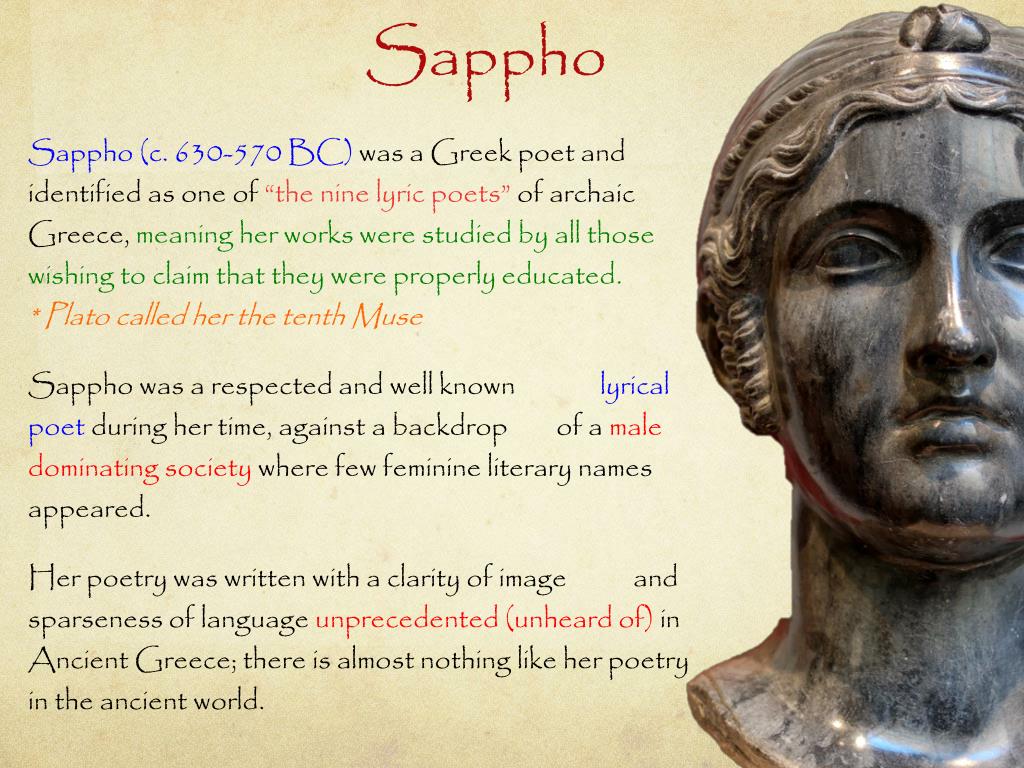

Thus Sappho portrays Eros mostly as a dominating, meddling force, but sometimes as her servant, over whom she has power. There is one exception to this one fragment reads “both you and my servant Eros” (321). In this way, Sappho reinforces an association between Eros and cooking, his arrow a utensil and the souls of his victims–lovers–the ingredients in his erotic recipe. Other translations of this poem use words like “limb-loosening” and “shakes me,” but the word γλυϰύπιϰρον (“glukupikron”) leaves no room for interpretation– literally, it means “sweetbitter.” While obviously a metaphor for love that is harsh yet irresistible, it cannot be denied that “sweet” and “bitter” are literally gustatory experiences. Melting and stirring both have food-related connotations, but this may just be a coincidence, unique only to Carson’s translation. Olympus.Īgain words related to cooking follow a reference to Eros in a poem which reads “Eros the melter of limbs (now again) stirs me– sweetbitter unmanageable creature who steals in” (265). The comparison of love to fire is not an uncommon one, but the potential culinary connotation of Eros’ action conjures images of the child god as some sort of divine chef who cooks up romances and concocts love potions in his kitchen on Mt.

In her notes, Anne Carson admits that much more may be read into this short line, rendering her translation “all wrong.” In fact, the verb of the sentence, ὄπταις (“optais”), can also be translated as “bake, roast, broil boil.” Because many of Sappho’s poems were really songs meant to be sung by a group of people, an alternate translation of this line is “you burn us.” Additionally, Carson suggests that the “you” in the poem could be Eros, making it “a very different poem–a cry to the god who plays with fire from the community of souls subjected to its heat” (366). “You” could refer to someone who has wronged Sappho, but given the usual subjects of her poetry, it would be more correct to assume that the poem refers to an erotic “burning,” an intense romantic or sexual desire. If this is the case, Sappho cleverly uses a reference to Eros to avoid explicitly expressing her homosexual desires and highlight the complexity and singularity of her feelings at a young age.Īt first glance, the fragment which reads simply “you burn me” seems an epigram, a fleeting lament (77). Of course, the poem cannot be taken as biographical evidence of Sappho herself, but her use of the first person does suggest a deeply personal connection to the words and ideas expressed in the poem, if not a literal one. On the other hand, “for a boy by slender Aphrodite” could be interpreted as a reference to the fact that Eros was begotten “by” Aphrodite, making it Eros who has caused Sappho to fall in love and thus leaving the object of her affection gender-ambiguous. In this case, the poem would mean that Aphrodite has caused Sappho to fall in heterosexual love. Even in Carson’s translation, the phrase “longing for a boy” would today plainly indicate love towards a boy. On the surface, this poem could be about heterosexual love– in fact, many who translate it interpret it this way.

Sappho may be implicitly referencing Eros in a poem which reads “sweet mother I cannot work the loom / I am broken with longing for a boy by slender Aphrodite” (203). However, the few direct references to Eros she makes lack context, making it necessary to dig deeper to truly understand how Eros works in Sappho’s poetry. One fragment of Sappho reads simply “paingiver” and another “mythweaver,” the first being one of Eros’ epithets and the second a putative reference to him, unique to Sappho. Sappho uses frequent references to Eros in order to define herself and her art. Clearly Sappho considers Eros to be a driving force in her life, and he is therefore a motif in her poetry, which often revolves around themes of romance and sexuality. Sometimes he is mentioned by name, like in one poem which reads “Eros shook my mind like a mountain wind falling on oak trees,” but most of the time Sappho refers to him indirectly (99). Eros, the child god of love and everything erotic, seems ever present in Sappho’s lyric poetry.


 0 kommentar(er)
0 kommentar(er)
